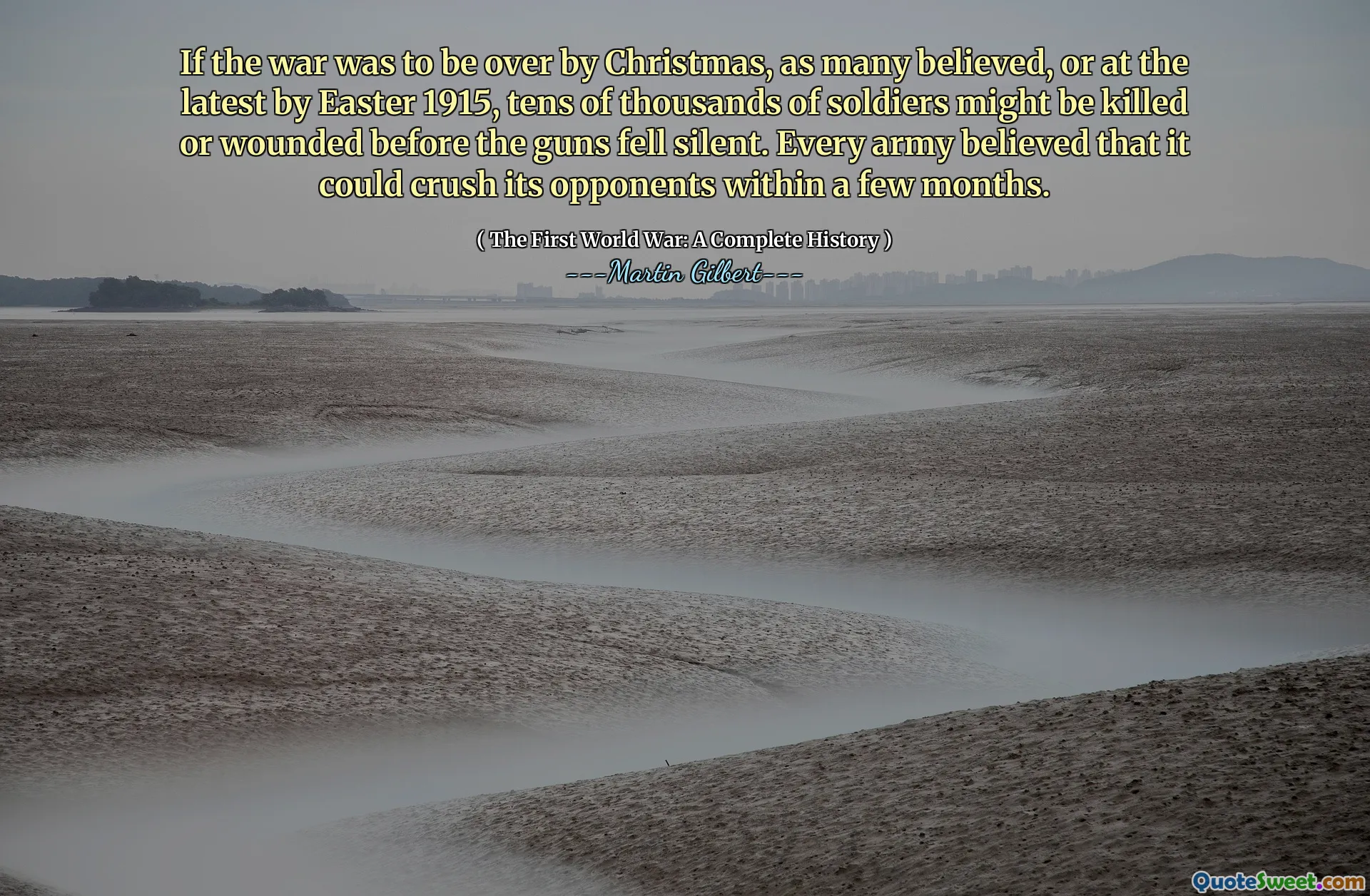
If the war was to be over by Christmas, as many believed, or at the latest by Easter 1915, tens of thousands of soldiers might be killed or wounded before the guns fell silent. Every army believed that it could crush its opponents within a few months.
The belief that World War I would conclude swiftly led to a tragic underestimation of its actual duration and consequences. Many thought that by Christmas or Easter of 1915, all fighting would cease, resulting in a false sense of confidence. This mindset caused military leaders and nations to prepare for short-term conflicts with little regard for the prolonged suffering it would entail.
Consequently, the expectations of a quick victory led to a catastrophic loss of life, with tens of thousands of soldiers being killed or injured before any peace was achieved. The assumptions held by the armies only deepened the tragedy of the conflict, as each side remained convinced of their imminent triumph despite the unfolding reality of a drawn-out war.











